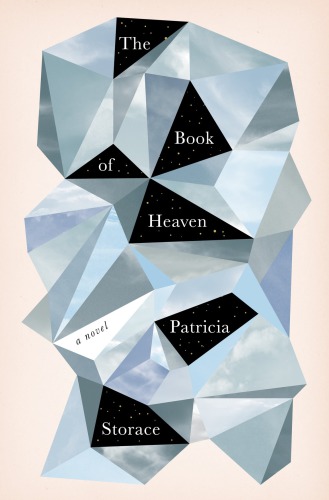
The Book of Heaven
A Novel
- اطلاعات
- نقد و بررسی
- دیدگاه کاربران
نقد و بررسی

December 9, 2013
Acclaimed poet and memoirist Storace (Dinner with Persephone) steps onto the terrain of myth, creating a feminist cosmology of sorts. in this novel of four women. We begin with Eve, who tells a tale of evading rape and discovering a zodiac of constellations that we usually cannot see from Earth. The constellations offer archaic feminine images, such as a giant cooking pot, and hold the tales of archetypal women (some biblical, some invented by Storace). Storace uncovers the women’s stories—and, throughout, implies that telling and hearing one another’s stories is a way to discover the sacred. (“We are God’s questions to each other, and through the lattice of our questions, we sometimes catch a glimpse of the divine.”) Along the way, the author delivers koan-like proverbs: “All marriages are arranged, except those in which the wife invents her husband, and the husband invents his wife.” Nominally a novel, the book is more poetic, elusive, and thought provoking than it is a page-turning narrative. What if God is a woman, or at least a god with a woman’s point of view? seems to be the overiding concept. The topic recalls Anita Diamant or Sue Monk Kidd, but the prose is almost self-consciously mystical. Agent: Lynn Nesbit, Janklow & Nesbit Associates.

January 1, 2014
Fleeing Orion the Hunter, the biblical figure of Eve is carried away by a river of stars to another Heaven where unfamiliar, female-inspired constellations are visible. In her visionary first novel, Storace (Sugar Cane: A Caribbean Rapunzel, 2007, etc.) gives voice to the stories behind four of them, tales of women dwelling in different yet not unfamiliar worlds of oppression and submission. Stupendously imagined and detailed, occasionally didactic and dense, Storace's descriptions of the four women's lives that inspired these unknown star formations are filled with distantly recognizable tribes, beliefs, dynasties and social systems. The Knife is the tale of Souraya, whose marriage teaches her harsh lessons of love and betrayal. Finally a mother, she must wield a blade to save her child. The Cauldron introduces a slave, Savour, whose brilliant culinary talents help her survive imperialists, despots and genocide. The story of the Paradise Nebula portrays Rain, whose enforced prostitution teaches her to hate, to dance and to find the will to save innocence, leading to claims she is a deity. The fourth constellation, The Lovers' Cluster, is devoted to Princess Sheba. Several of the stories are modeled on Old Testament figures; all recount lavishly complicated regimes in which the women suffer intensely but where their isolation can result in extraordinary acts. Storace's striking feminist mythopoeic work offers provocative alternatives in beautifully crafted prose.
COPYRIGHT(2014) Kirkus Reviews, ALL RIGHTS RESERVED.

January 1, 2014
Poet and memoirist Storace turns her analytical and lyrical focus to the celestial in this beyond-category novel. It begins in the voice of the first woman, Eve, who reveals that she and God planned the fall of man before she was even born into Eden. Eve spent her time in Heaven before she came to Earth studying four constellations, each tracing the shape of a mythic woman whose ordeals in life had been so great they were immortalized in the stars after death, and each of whom has a lesson to teach her. These matriarchs become the novel's narrators following Eve's introduction. Each taps into her inner divinity to rise above the often demeaning circumstances in which she finds herself. Some are drawn from familiar figures of the Old Testament, while others are Storace's own creations. Each speaks in a voice so keen, the reader doesn't want her story to end, and Storace's imaginative look into the nature of eternity, memory, and the divine leaves readers with much to contemplate. A stunningly poetic and mythological novel.(Reprinted with permission of Booklist, copyright 2014, American Library Association.)

September 15, 2013
Celebrated for her travel memoir Dinner with Persephone: Travels in Greece and an admirable poet as well, Storace has emerged after 15 quiet years with a distinctive new book that recasts the Old Testament from the perspective of its female protagonists, though don't think The Red Tent. Storace takes a supremely mythopoetic approach, opening with Eve indignant at how incidents in the Garden of Eden were misrepresented. Explaining that there are more things in heaven than dreamt of in our philosophy, Eve shows us four unknown constellations--a knife, a cooking vessel, a paradise garden, and a pair of lovers--and their deep significance to women. Much anticipated in literary circles.
Copyright 2013 Library Journal, LLC Used with permission.




دیدگاه کاربران